Related Research Articles

The foreign relations of Finland are the responsibility of the president of Finland, who leads foreign policy in cooperation with the government. Implicitly the government is responsible for internal policy and decision making in the European Union. Within the government, preparative discussions are conducted in the government committee of foreign and security policy, which includes the Prime Minister and at least the Minister of Foreign Affairs and the Minister of Defence, and at most four other ministers as necessary. The committee meets with the President as necessary. Laws concerning foreign relations are discussed in the parliamentary committee of foreign relations. The Ministry of Foreign Affairs implements the foreign policy.
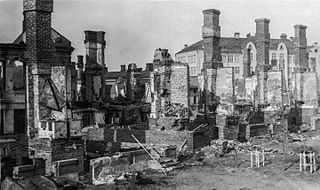
The Finnish Civil War was a civil war in Finland in 1918 fought for the leadership and control of the country between White Finland and the Finnish Socialist Workers' Republic during the country's transition from a grand duchy of the Russian Empire to an independent state. The clashes took place in the context of the national, political, and social turmoil caused by World War I in Europe. The war was fought between the "Reds", led by a section of the Social Democratic Party, and the "Whites", conducted by the conservative-based senate and the German Imperial Army. The paramilitary Red Guards, which were composed of industrial and agrarian workers, controlled the cities and industrial centers of southern Finland. The paramilitary White Guards, which consisted of land owners and those in the middle- and upper-classes, controlled rural central and northern Finland, and were led by General C. G. E. Mannerheim.

Helsinki is the capital, primate, and most populous city of Finland. Located on the shore of the Gulf of Finland, it is the seat of the region of Uusimaa in southern Finland, and has a population of 658,864. The city's urban area has a population of 1,268,296, making it by far the most populous urban area in Finland as well as the country's most important center for politics, education, finance, culture, and research. Helsinki is located 80 kilometres (50 mi) north of Tallinn, Estonia, 400 km (250 mi) east of Stockholm, Sweden, and 300 km (190 mi) west of Saint Petersburg, Russia. It has close historical ties with these three cities.
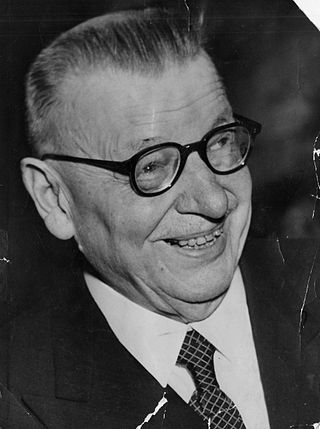
Juho Kusti Paasikivi was the seventh president of Finland (1946–1956). Representing the Finnish Party until its dissolution in 1918 and then the National Coalition Party, he also served as Prime Minister of Finland. In addition to the above, Paasikivi held several other positions of trust, and was an influential figure in Finnish economics and politics for over fifty years.
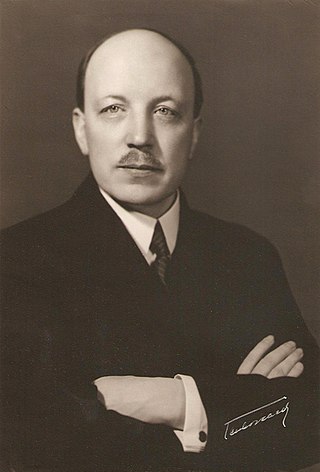
Risto Heikki Ryti served as the fifth president of Finland from 1940 to 1944. Ryti started his career as a politician in the field of economics and as a political background figure during the interwar period. He made a wide range of international contacts in the world of banking and within the framework of the League of Nations. Ryti served as prime minister during the Winter War of 1939–1940 and the Interim Peace of 1940–1941. Later he became president during the Continuation War of 1941–1944. After the war, Ryti was the main defendant in the Finnish war-responsibility trials (1945–1946), which resulted in his conviction for crimes against peace.

Patriotic People's Movement was a Finnish nationalist and anti-communist political party. IKL was the successor of the previously banned Lapua Movement. It existed from 1932 to 1944 and had an ideology similar to its predecessor, except that IKL participated in elections, although with limited success.

The Hietaniemi cemetery is located mainly in the Lapinlahti quarter and partly in the Etu-Töölö district of Helsinki, the capital of Finland. It is the location for Finnish state funeral services and is owned by the Evangelical Lutheran Church of Finland.

Risto Antero Jarva was a Finnish filmmaker.

The Academic Karelia Society was a Finnish nationalist and Finno-Ugric activist organization aiming at the growth and improvement of newly independent Finland, founded by academics and students of the University of Finland in 1922. Its members retained influential positions in the academic life of the era as well as within the officer corps of the Army. The AKS controlled the student union of the University of Helsinki from the mid-1920s right up to 1944, when the Society was disbanded in the aftermath of the Continuation War.
Finnish studies is a research area which is part of humanities and social sciences, and usually studies Finnish language, Finnish culture and Finnish history.
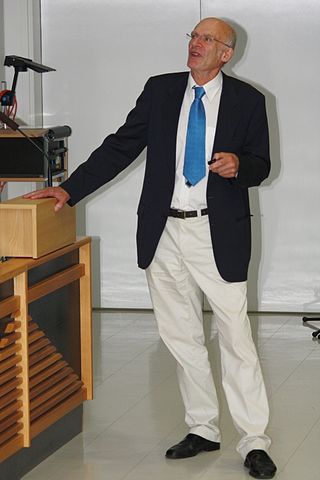
Risto Kalervo Näätänen is a psychological scientist, pioneer in the field of cognitive neuroscience, and known worldwide as one of the discoverers of the electrophysiological mismatch negativity. He has been a much-cited social scientist and one of the few individuals appointed permanent Academy Professor of the Academy of Finland. He retired in 2007, retaining a title of Academy Professor emeritus of the Academy of Finland. Since 2007, he has been a professor at the University of Tartu.
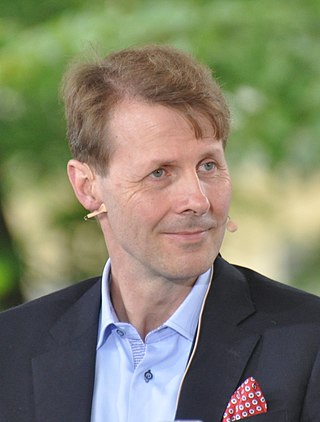
Risto Kalevi Siilasmaa is a Finnish businessperson and the chairman, founder and former CEO of F-Secure Corporation, an anti-virus and computer security software company based in Helsinki, Finland. He is also the biggest shareholder of F-Secure, owning around 40% of the company. He was chairman of Nokia from 2012 to 2020.

Erkki Johan Bäckman is a Finnish political activist, author, legal sociologist, propagandist, and convicted stalker working for the Russian Government. Bäckman has been a prominent Finnish propagandist in Russia who has actively participated in long-standing operations to propagate anti-Finnish and anti-Western propaganda in Russia.
Risto is a masculine given name, found in Finnish, Estonian and South Slavic. In South Slavic, it is a hypocorism derived from Hristofor or Hristivoje. It may refer to:
Ismo Uskali Mäki is a Finnish professor in the Department of Political and Economic Studies (Philosophy) at the University of Helsinki. He is also director of the Trends and tensions in Intellectual Integration centre, which was recently nominated "Finnish Centre of Excellence" in the Philosophy of the Social Sciences. Previous posts and roles have included his being a professor of philosophy at the Erasmus University of Rotterdam where he directed the Erasmus Institute for Philosophy and Economics and his being the editor of the Journal of Economic Methodology. His main research interests lie in the methodology of economics and the philosophy of the sciences including social sciences with his approach typically being described as a realist philosophy of economics. Mäki is currently serving as an Academy Professor for the Academy of Finland.
Arvo Jaakko Juhani Jalas was a Finnish botanist. He worked in the University of Helsinki.
Jaakko Pekka Blomberg is a Finnish diplomat.

Erik Anders Allardt was a Finnish sociologist.
Elina Haavio-Mannila is a Finnish social scientist and Professor Emerita of Sociology at the University of Helsinki where she served as the Docent of Sociology (1965–1971), Assistant Professor (1971–1992), and Professor (1992–1998). She is known for researching gender roles and gender in Finnish life. Much of the research in the latter field was done together with Osmo Kontula. In 1958, she became the first woman in Finland to earn the Doctor in Social Sciences degree.
Risto Ihamuotila is a retired Finnish academic and ex-Chancellor of the University of Helsinki.
References
Sources
- Alapuro, Risto at Uppslagsverket Finland (2003)
Notes
- ↑ Riihinen, Eleonoora (7 December 2022). "Sosiologi Risto Alapuro on kuollut". Helsingin Sanomat. Retrieved 7 December 2022.